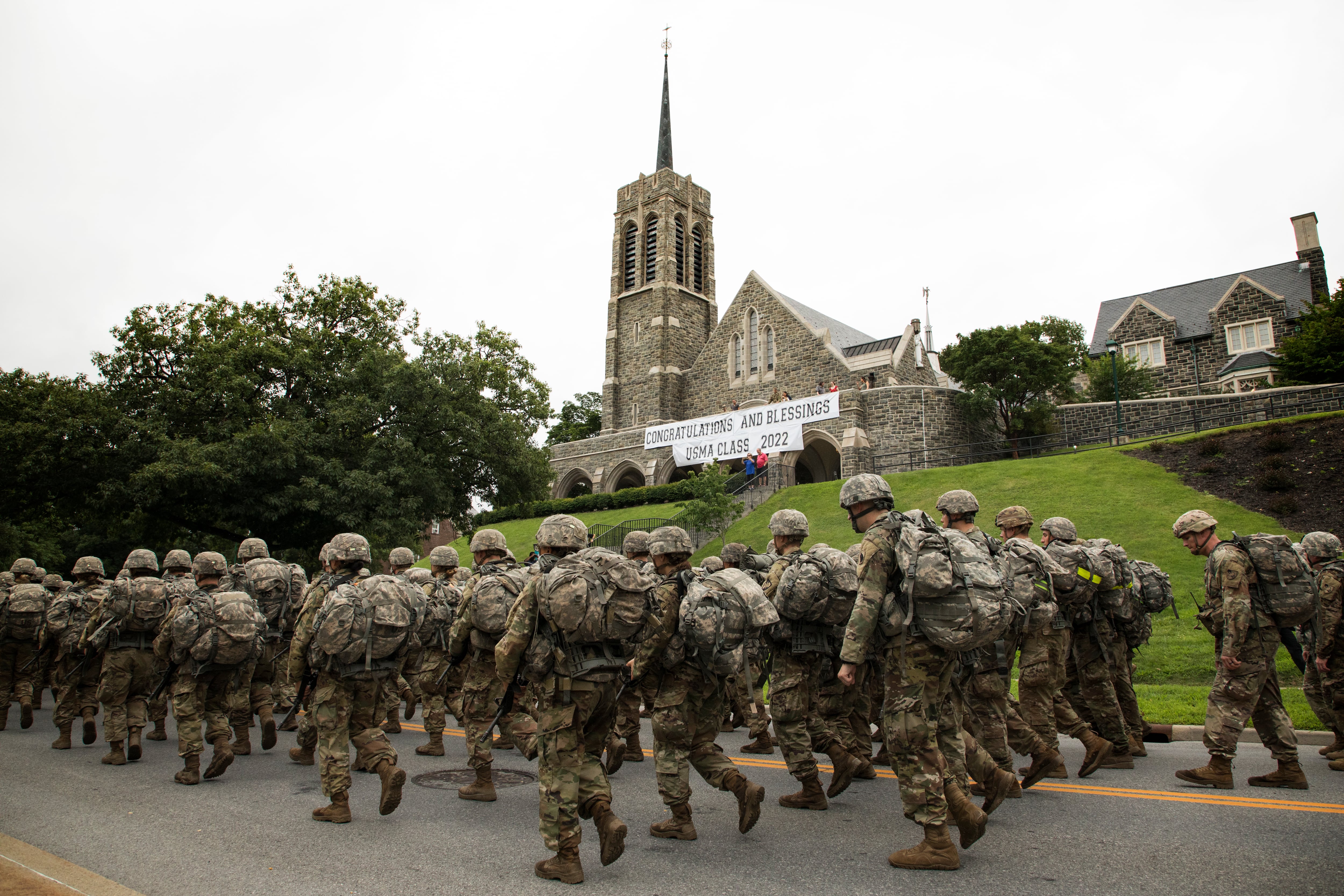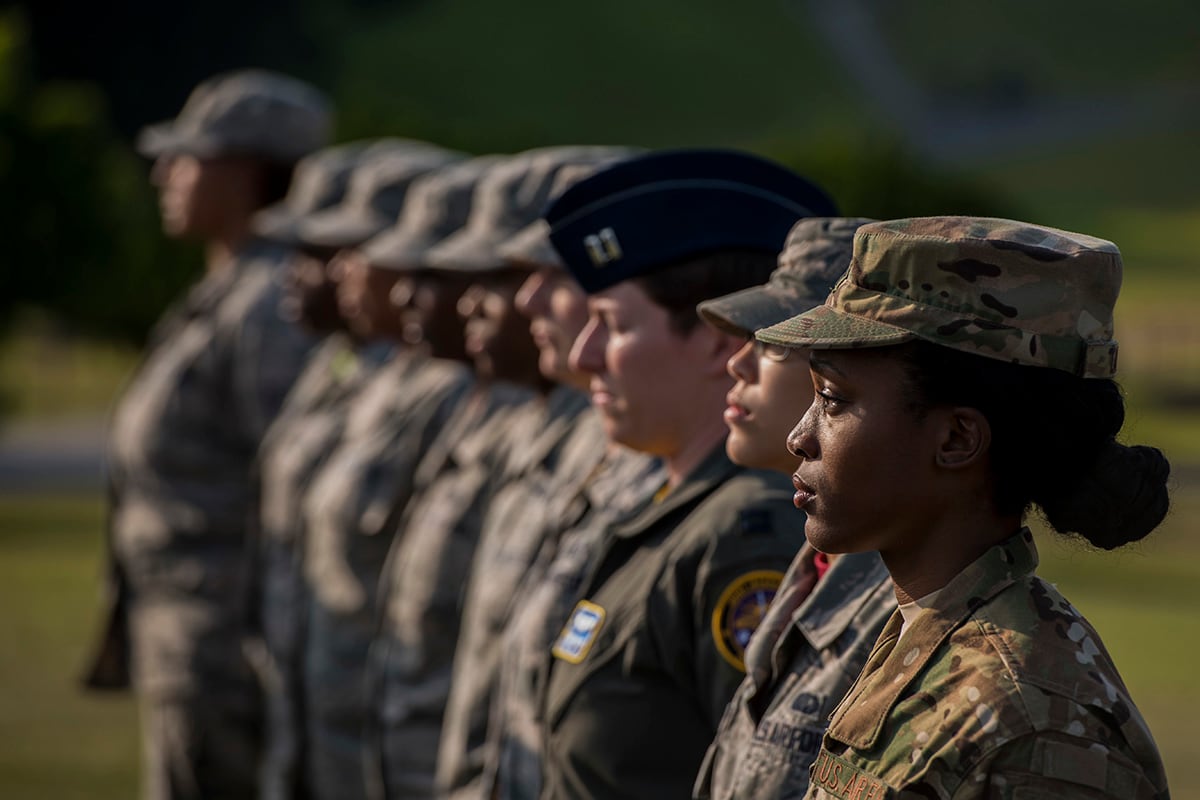Defense Department officials will make sexual harassment a criminal offense amid new reports of increasing bad behavior among service members.
In a statement Thursday morning, acting Defense Secretary Patrick Shanahan called the move a necessary step to combat the “scourge” of sexual assault and abuse in the ranks.
A new report from the department’s Sexual Assault Prevention and Response office shows the number of reported cases of sexual assault in the ranks rose from nearly 4,800 in fiscal 2016 to more than 6,050 in fiscal 2018.
RELATED

Based on reporting rates (about one in three service members reported their assaults to authorities, according to researchers), officials estimated the actual number of assaults in the military for fiscal 2018 at about 20,500 cases, a rise of nearly 38 percent the previous two years.
“Within the female active force, increases were concentrated among service women ages 17 to 24 as well as junior enlisted women, who are already at the highest risk for sexual assault,” the report states. “Most perpetrators were in the E3 to E5 rank, and alleged perpetrators were often the same grade, or slightly higher, than the victim.”
A day earlier, during testimony on Capitol Hill, Shanahan promised new action to deal with issues of harassment and retaliation against victims of those assaults. Defense officials said they hope to have new criminal penalties in place by this October, including “steps to seek a stand-alone military crime of sexual harassment.”
The department also announced plans for new training for commanders and a new program to root our serial sex offenders, as well as “efforts to select recruits of the highest character.” Specifics of all of those initiatives have not yet been identified.
“To put it bluntly, we are not performing to the standards and expectations we have for ourselves or for each other,” Shanahan said in the memo announcing the changes. “This is unacceptable. We cannot shrink from facing the challenge head on.”
In a separate statement, Marine Corps Commandant Gen. Robert Neller echoed those sentiments.
“In the end, this is an issue of trust – trust that fellow Marines will look after each other, trust they will not be assaulted, and trust their command will take appropriate action,” he said. “Only Marines who trust and respect each other can be fully prepared to fight and win our nation’s battles.”
Combating sexual harassment and assault has been a focus of military leaders in recent years, but lawmakers have expressed frustration with the lack of progress on the topic.
“Sexual assaults continue to increase dramatically while the number of cases going to trial goes down,” Sen. Kirsten Gillibrand, D-N.Y., said in a statement. “The status quo is not working. It’s time for Congress to step up and bring accountability where the Department of Defense has repeatedly failed.”
Sen. Martha McSally, R-Ariz., and an Air Force veteran who recently revealed her own sexual assault while serving, said the report results “confirm that that the time is now to impart lasting change within the military and that it is more urgent than ever."
“We must not allow women and men to be assaulted while serving our country and we must create an environment that is safe,” she said.
In February, defense officials announced the number of cases of unwanted sexual encounters at the military service academies has increased almost 50 percent since 2016. Last fall, a report from the RAND Corporation found that more than 10 percent of all women experienced a sexual assault at “high-risk” installations inside the military.
RELATED

Shanahan called the problem a critical readiness issue for the armed forces, one that has the potential to undermine trust and morale while also hurting recruiting and retention.
“Sexual assault is illegal and immoral, is inconsistent with the military’s mission, and will not be tolerated,” he said in the memo. “We will not rest until all service members can serve in an environment of dignity and respect.”
According to the SAPR report, 43 percent of women who reported a sexual assault to military authorities said it prompted “perceived negative experiences,” including additional harassment and abuse. That number was up from less than one-third in fiscal 2016.
However, cases of retaliation for reports were down, from 26 percent in fiscal 2016 to 21 percent in fiscal 2018. Shanahan has said he will consider strengthening criminal penalties for that behavior as part of the upcoming military legal review.
Leo covers Congress, Veterans Affairs and the White House for Military Times. He has covered Washington, D.C. since 2004, focusing on military personnel and veterans policies. His work has earned numerous honors, including a 2009 Polk award, a 2010 National Headliner Award, the IAVA Leadership in Journalism award and the VFW News Media award.





